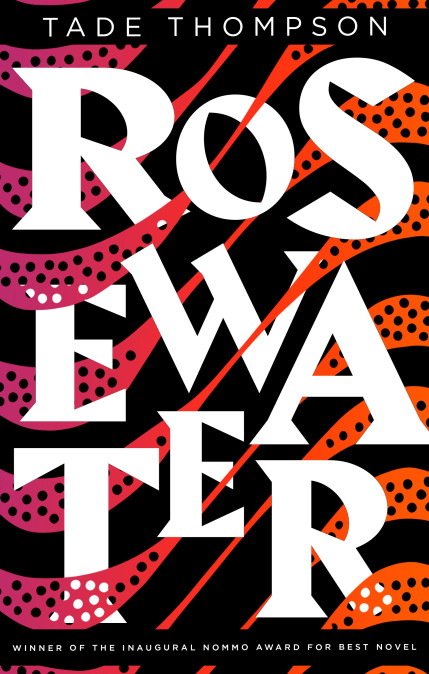Congratulations to Tade Thompson, who was announced yesterday as the winner of the 2019 Arthur C. Clarke Award for his novel Rosewater, the first of a trilogy exploring the aftermath and consequences of alien invasion.

I have loved Rosewater ever since first reading it in its original, Apex edition and its inclusion on the Clarke shortlist this year seemed like a complete no-brainer. To see the novel go on to win feels even more satisfying. Tade is one of the most interesting and capable new writers to have entered the field of science fiction in recent years. His knowledge of and passion for speculative literature, his freshness of approach and most of all his facility with language and form all serve to illustrate the reasons why his Clarke win is a classic.
And it’s even more to his credit that Rosewater has wrested its victory from such an interesting shortlist. The six books selected this year offer a fascinating overview of science fiction as it is currently being read and written, which is exactly what the award should be about.
Of course there were other novels I might equally have wished to see there – Simon Ings’s The Smoke, James Smythe’s I Still Dream, Christopher Priest’s An American Story, Joyce Carol Oates’s Hazards of Time Travel, Louise Erdrich’s Future Home of the Living God spring forcefully to mind – but given that the shortlist can only be six books long, it was wonderful to see Aliya Whiteley’s The Loosening Skin and Ahmed Saadawi’s Frankenstein in Baghdad making a showing, and I was especially intrigued by Simon Stalenhag’s The Electric State. As with the inclusion of Nick Drnaso’s Sabrina on last year’s Booker longlist, the judges’ selection of The Electric State highlights a different approach to science fiction and to creating narrative. I found the cumulative effect of Stalenhag’s extraordinary artwork to be something quite special, and if the text portion of the book had been just that little bit more substantial then Rosewater might have had even more of a fight on its hands!
For an in-depth critical appraisal of this year’s Clarke shortlist, I recommend you treat yourself to a read of M. L. Clark’s overview at Strange Horizons (Part 1 and Part 2). I found this to be well on a par with Vajra Chandrasekera’s summation last year, the kind of thoughtful critical writing that seeks to understand what the writer was striving for as well as situating the novels in relation to current trends within science fiction literature. Like Vajra’s, it’s a great piece of work and deserves attention. For anyone seeking an introduction to the Clarke Award and what it’s doing, I can think of none better.
After taking a deliberate step back from Clarke blogging this year, I find I’ve been missing the fire and fury and am already hatching plans for some new commentary of my own in the months to come. Congratulations once again to Tade Thompson, and roll on Clarke 2020!